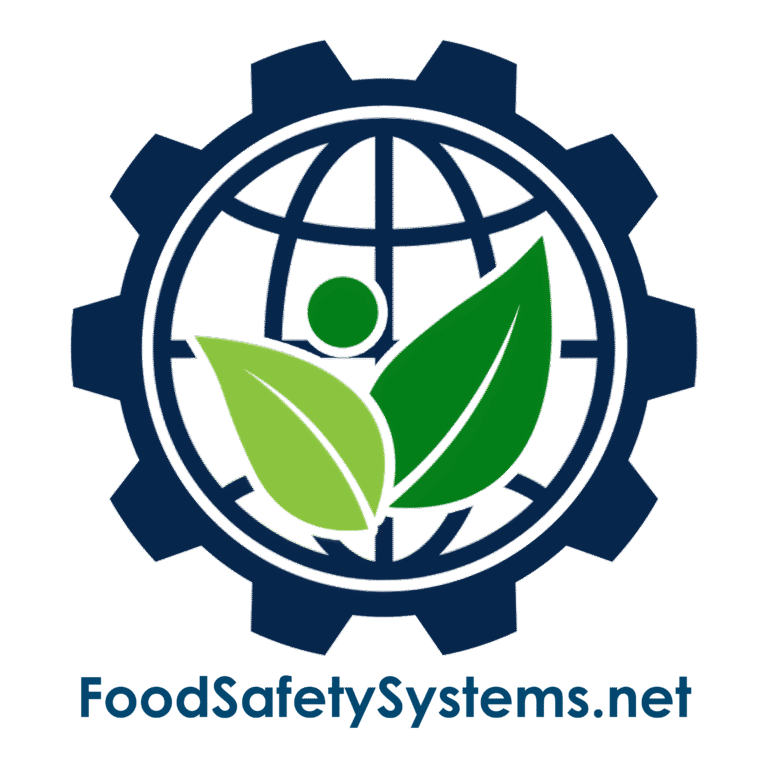Maintenance and Repair

Aligned with BRCGS Food Safety Issue 9 – Clause 4.7 Site Standards
Requirement Overview
Clause 4.7 of the BRCGS Food Safety Standard mandates that the site must have planned, preventative, and reactive maintenance systems in place to ensure that buildings, equipment, and facilities do not pose a risk to product safety, legality, or quality.
Clause 4.7.1: “There shall be a documented planned maintenance programme covering all plant and processing equipment.”
Clause 4.7.2: “The condition of the building fabric shall be maintained to minimise the risk of contamination.”
Maintenance activities must be controlled, documented, and designed to prevent contamination, minimize downtime, and support continuous food safety assurance.
Aligned with BRCGS for Storage & Distribution Issue 4 – Clause 4.3.1 & 4.3.3
Requirement Overview
BRCGS for Storage & Distribution requires that products moved via cross-docking are traceable and controlled at all times, even when they are not held in storage for extended periods.
Clause 4.3.1: “The company shall ensure that traceability is maintained at all stages, including during cross-docking operations.”
Clause 4.3.3: “Procedures shall be in place to ensure that all products handled, including those not stored on-site, remain under control and are not subject to contamination or substitution.”
Cross-docking operations must not compromise product traceability, safety, or integrity. Even with minimal handling and temporary presence, each product must be accurately identified, documented, and protected.

Key Compliance Objectives
-
✓ Maintain hygienic and structurally sound facilities and equipment
✓ Prevent contamination risks from poorly maintained areas
✓ Ensure all maintenance is authorized, recorded, and verified
✓ Comply with legal, regulatory, and food safety requirements
Step-by-Step Compliance Implementation
1. Develop a Planned Maintenance Program
-
Program Components Include:
-
• Maintenance schedule for equipment and infrastructure
• Risk-based prioritization (e.g., high-risk areas, CCP-related equipment)
• Assigned responsibilities and work procedures
Evidence to Maintain:
-
• Preventive maintenance schedule/calendar
• Equipment maintenance logs
• Maintenance SOPs and technician work orders
- • Maintenance schedule for equipment and infrastructure • Risk-based prioritization (e.g., high-risk areas, CCP-related equipment) • Assigned responsibilities and work procedures
- • Preventive maintenance schedule/calendar • Equipment maintenance logs • Maintenance SOPs and technician work orders
2. Control Reactive (Unscheduled) Maintenance
-
Control Measures Include:
-
• Authorization before any emergency repair begins
• Isolation of food or materials from the repair area
• Cleaning and sanitizing after work is completed
Evidence to Maintain:
-
• Reactive maintenance log with dates and corrective actions
• Signed post-maintenance inspection forms
• Cleaning validation records after repair
- • Authorization before any emergency repair begins • Isolation of food or materials from the repair area • Cleaning and sanitizing after work is completed
- • Reactive maintenance log with dates and corrective actions • Signed post-maintenance inspection forms • Cleaning validation records after repair
3. Manage Building Fabric and Utilities
-
Requirements Include:
-
• Regular inspection of floors, walls, ceilings, and drains
• Prompt repair of structural damage
• Safe installation and maintenance of lighting, ventilation, and water systems
Evidence to Maintain:
-
• Fabric inspection checklists
• Repair tickets and photographs of before/after repairs
• Contractor reports (if external services used)
- • Regular inspection of floors, walls, ceilings, and drains • Prompt repair of structural damage • Safe installation and maintenance of lighting, ventilation, and water systems
- • Fabric inspection checklists • Repair tickets and photographs of before/after repairs • Contractor reports (if external services used)
4. Monitor and Verify Maintenance Activities
-
Verification Steps:
-
• Post-maintenance inspections and sign-offs
• Internal audits of maintenance procedures
• Trending of equipment failures or downtime
Evidence to Maintain:
-
• Maintenance effectiveness reports
• Internal audit records
• Equipment breakdown trend analysis
- • Post-maintenance inspections and sign-offs • Internal audits of maintenance procedures • Trending of equipment failures or downtime
- • Maintenance effectiveness reports • Internal audit records • Equipment breakdown trend analysis
Common Audit Findings & Recommended Fixes
| Audit Finding | Recommended Action |
|---|---|
| No documented maintenance schedule | Create a preventive maintenance plan and keep records |
| Repairs conducted near exposed product | Implement strict controls to isolate food during maintenance |
| Lack of post-repair cleaning records | Document cleaning, validation, and re-inspection procedures |
| Poor building condition or ignored damage | Schedule regular fabric inspections and implement corrective actions |
Auditor Verification Checklist
During a BRCGS audit, be prepared to present:
-
• Documented planned maintenance program
• Reactive maintenance records with controls and cleaning logs
• Facility and building inspection reports
• Post-maintenance inspection and validation forms
• Evidence of management oversight and review
Implementation Roadmap
Build the Program
-
✓ Develop a preventive maintenance calendar and SOPs
✓ Train technicians and assign accountability
Control Work Activities
-
✓ Secure and isolate areas during repairs
✓ Perform and document post-repair cleaning and inspections
Monitor Effectiveness
-
✓ Audit equipment maintenance compliance
✓ Track repair response times and frequency of issues
Improve Continuously
-
✓ Analyze failures and revise maintenance frequencies
✓ Include building fabric in improvement plans
Why This Matters?
-
✓ Ensures equipment reliability and product safety
✓ Reduces contamination risk during repairs
✓ Demonstrates BRCGS Clause 4.7 compliance
✓ Builds confidence in operational hygiene and infrastructure control
Support Tools Available
Food Safety Systems provides:
-
✓ Preventive and reactive maintenance log templates
✓ Building inspection checklists
✓ Maintenance SOPs and validation forms
✓ Staff training materials on hygienic repair practices
Privacy Policy | Terms of Service
Powered by Consultare Inc. Group, A Compliance Company







